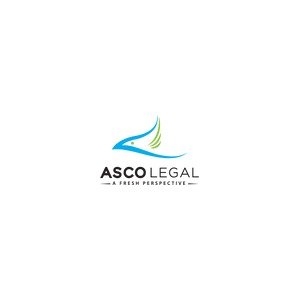Best Climate Change Law Lawyers in Auckland
Share your needs with us, get contacted by law firms.
Free. Takes 2 min.
List of the best lawyers in Auckland, New Zealand
About Climate Change Law in Auckland, New Zealand
Climate Change Law in Auckland, New Zealand, focuses on legal frameworks and policies aimed at addressing the impacts of climate change on the environment, businesses, and communities. The law encompasses regulations designed to reduce greenhouse gas emissions, increase resilience to climate impacts, and meet both national and international commitments for sustainability. Auckland, as New Zealand's largest city, faces unique climate challenges due to its coastal location, population growth, and infrastructure needs. The local legal landscape is shaped by both national legislation and regional policies, which guide development, environmental protection, and corporate responsibility.
Why You May Need a Lawyer
Individuals, businesses, and organizations may need a lawyer specializing in Climate Change Law for several reasons. Common situations include navigating compliance with environmental regulations, applying for resource consents related to emissions or energy use, addressing breaches of climate legislation, and managing disputes arising from the impact of climate policies. Lawyers can help interpret complex rules, represent clients in hearings or negotiations, and advocate for environmental or commercial interests. Legal advice is also essential for developers and investors managing climate risk or seeking to ensure proposed projects align with local and national climate requirements.
Local Laws Overview
Climate Change Law in Auckland is governed by a combination of national statutes and local government policies. Key laws include the Climate Change Response Act 2002, the Resource Management Act 1991, and recent amendments such as the Zero Carbon Act. Auckland Council has developed its own Climate Action Framework, outlining goals for reducing emissions and adapting to climate risks. The Emissions Trading Scheme (ETS) regulates greenhouse gas emissions across various sectors. Strict resource consent processes apply to new developments, and there are specific obligations for reporting and reducing emissions for certain industries. Regular policy updates reflect New Zealand's commitments under the Paris Agreement.
Frequently Asked Questions
What does Climate Change Law cover in Auckland?
Climate Change Law covers regulations and policies aimed at mitigating greenhouse gas emissions, adapting to climate impacts, and ensuring compliance with both national and local environmental standards.
Who enforces climate change regulations in Auckland?
Enforcement is carried out by multiple bodies, including the central government through the Ministry for the Environment and the Environmental Protection Authority, as well as Auckland Council for regional matters.
Do I need permission to build a sustainable development in Auckland?
Yes, you typically need to apply for resource consent from Auckland Council, ensuring your project meets climate and sustainability requirements set out in local policies and the Resource Management Act.
How does the Zero Carbon Act affect businesses in Auckland?
The Zero Carbon Act sets emissions reduction targets and requires businesses to understand, report, and reduce their carbon footprint. Larger emitters must comply with the Emissions Trading Scheme and may have additional obligations.
What are the legal consequences for breaching climate change regulations?
Legal consequences can include fines, enforcement actions, remediation orders, or even prosecution for serious breaches. Non-compliance can also negatively affect business reputation and operations.
Can I challenge a development on climate grounds?
Yes, individuals or organizations can submit objections or appeals against developments that may have significant climate impacts, often through resource consent hearings or the Environment Court.
How do climate policies impact land use in Auckland?
Climate policies guide land use by prioritizing resilience, sustainable urban development, and protection of vulnerable areas, affecting zoning, building requirements, and infrastructure planning.
Are farmers affected by Climate Change Law in Auckland?
Yes, agricultural emissions are regulated, and farmers may need to comply with emissions reporting and management plans, alongside broader land and water use regulations.
How can I make my business more climate compliant?
Seek legal advice to assess your current operations, implement sustainable practices, report emissions where required, and ensure all activities comply with relevant laws and council regulations.
Where can I get more information or support about climate change legal matters?
Contact the Ministry for the Environment, Auckland Council, or seek independent legal advice to navigate the complex regulatory landscape effectively.
Additional Resources
- Ministry for the Environment: Provides guidance on national climate policy and laws - Auckland Council Environmental Services: Offers local policy information and resources - Environmental Protection Authority: Oversees compliance, reporting, and the Emissions Trading Scheme - Community Law Auckland: Offers free and low-cost legal advice, including on environmental issues - New Zealand Law Society: Directory of registered lawyers with environmental and climate expertise - Climate Change Commission: Advises on policy and progress towards New Zealand's climate targets
Next Steps
If you need legal assistance regarding Climate Change Law in Auckland, consider the following steps. Begin by identifying your specific legal issue or question. Gather all relevant documents, permits, or correspondence related to your matter. Seek a qualified lawyer who specializes in environmental or climate change law, either through personal recommendation or by consulting professional directories. Schedule a consultation to discuss your situation and possible legal strategies. For general information and support, reach out to local government agencies, community legal services, or specialist organizations listed in the resources section above.
Lawzana helps you find the best lawyers and law firms in Auckland through a curated and pre-screened list of qualified legal professionals. Our platform offers rankings and detailed profiles of attorneys and law firms, allowing you to compare based on practice areas, including Climate Change Law, experience, and client feedback.
Each profile includes a description of the firm's areas of practice, client reviews, team members and partners, year of establishment, spoken languages, office locations, contact information, social media presence, and any published articles or resources. Most firms on our platform speak English and are experienced in both local and international legal matters.
Get a quote from top-rated law firms in Auckland, New Zealand — quickly, securely, and without unnecessary hassle.
Disclaimer:
The information provided on this page is for general informational purposes only and does not constitute legal advice. While we strive to ensure the accuracy and relevance of the content, legal information may change over time, and interpretations of the law can vary. You should always consult with a qualified legal professional for advice specific to your situation.
We disclaim all liability for actions taken or not taken based on the content of this page. If you believe any information is incorrect or outdated, please contact us, and we will review and update it where appropriate.

















